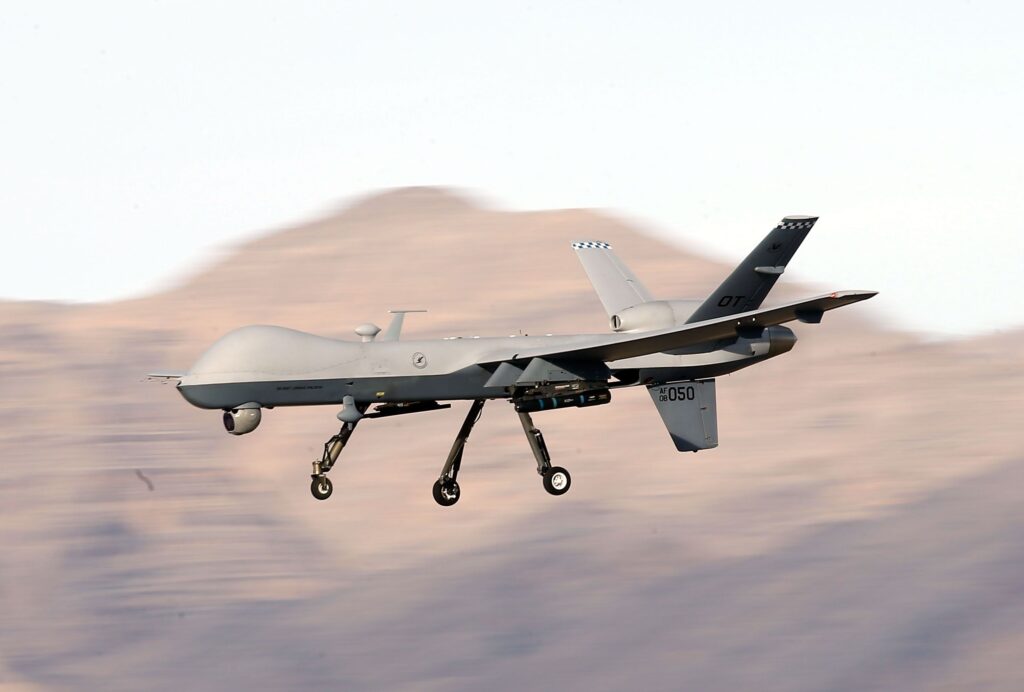This article was originally published by Belle Carter at Natural News.
-
- Israel’s military intercepted Iranian drones launched in response to its airstrikes on Iranian targets, with operations reported over Syria and Saudi Arabia, while Jordan intercepted missiles and drones in its airspace.
-
- Israel’s unprecedented assault on Iran, involving 200 fighter jets and over 330 munitions, targeted over 100 sites, including nuclear facilities and research centers, with Prime Minister Netanyahu describing it as a defensive measure against the Iranian threat.
-
- Iran launched over 100 drones in retaliation, expected to reach Israeli airspace within nine hours. Iran’s Supreme Leader, Ayatollah Ali Khamenei, warned of a harsh response, while Israeli officials remain confident in their ability to intercept incoming threats.
-
- The U.S. confirmed it was not involved in the Israeli operation, with Secretary of State Marco Rubio emphasizing the priority of protecting American forces. The U.S. Embassy advised citizens to shelter in place and began evacuating non-essential personnel due to the threat of Iranian retaliation.
-
- The strikes threaten to derail U.S.-Iran nuclear talks, with Iran rejecting U.S. terms for a new agreement. The situation has roots in the 2015 nuclear deal’s collapse, raising fears of a nuclear-armed Iran and prompting concerns of regional escalation and potential miscalculations with dire consequences.
Israel’s military announced on Friday, June 13, that it had begun intercepting Iranian drones launched in response to its early morning airstrikes on Iranian targets.
According to Israel’s public broadcaster, the Israeli Air Force intercepted unmanned aerial vehicles (UAVs) over Syria, while Channel 12 reported that similar operations were underway over Saudi Arabia.
Jordan’s state news agency also confirmed that its military had intercepted a number of missiles and drones that entered its airspace. The developments come as Israel braces for the arrival of approximately 100 attack drones from Iran, which are believed to be part of an initial retaliation for Israel’s unprecedented assault on Iranian soil.
The Israeli strikes, dubbed “Operation Rising Lion,” were described by Prime Minister Benjamin Netanyahu as “a targeted military operation to roll back the Iranian threat to Israel’s very survival.” The operation, which involved 200 fighter jets and over 330 munitions, targeted more than 100 sites in Iran, including nuclear facilities and research centers.
Iranian state television reported that the head of the Islamic Revolutionary Guard Corps, Hossein Salami and the chief of staff of the Iranian Armed Forces, Maj. Gen. Mohammad Bagheri was among those killed in the strikes. Netanyahu vowed that the operation would continue “for as many days as it takes to remove this threat.”
In a statement, Iran’s Supreme Leader Ayatollah Ali Khamenei warned Israel to “await a harsh response.”
U.S. stance and involvement
The United States has reiterated that it was not involved in the Israeli operation. Secretary of State Marco Rubio confirmed that Israel acted unilaterally, stating, “We are not involved in strikes against Iran and our top priority is protecting American forces in the region.” Trump, who was briefed on the strikes in advance, told Fox News that the U.S. did not provide military assistance to Israel.
The U.S. Embassy in Israel has advised American citizens to shelter in place due to the threat of retaliatory attacks. The embassy also warned of potential “mortar, rocket, and missile fire, and unmanned aircraft system (UAS) intrusions.” The Israeli National Security Council has similarly warned Israelis abroad to avoid events connected to Israel or Judaism, citing the risk of “acts of revenge.” (Related: U.S. begins evacuating personnel from Middle East amid fears of Israeli attack on Iran.)
The strikes come at a critical juncture in U.S.-Iran nuclear talks. The Trump administration has been seeking to negotiate a new agreement to limit Iran’s nuclear program, but the recent escalation could derail these efforts. Iranian officials have indicated that they are unwilling to accept the terms proposed by the U.S., particularly the demand for a complete halt to uranium enrichment.
The current crisis has its roots in the 2015 nuclear agreement, which the Trump administration abandoned in 2018, accusing Iran of violating its terms. Since then, tensions have steadily risen, with Iran expanding its enriched uranium stockpile and the U.S. and Israel increasing pressure on Tehran.
The role of Israel
Israel has long been skeptical of negotiations with Iran, viewing the country as its top global foe. Over the years, Israel has carried out various covert and overt actions to hinder Iran’s nuclear ambitions. The recent strikes are the latest in a series of efforts to prevent Iran from acquiring nuclear weapons.
Iran’s nuclear program has been a source of international concern for decades. Despite Iran’s denials, international watchdogs have noted an increase in Iran’s stockpiles of highly enriched uranium. The 2015 agreement was designed to curb these activities, but its collapse has led to renewed fears of a nuclear-armed Iran.
The escalating conflict has prompted the U.S. to begin evacuating non-essential personnel and family members from its embassies and military bases in the region. The State Department cited concerns that Iranian retaliation could target these installations. The potential for regional escalation is high, with both Israel and Iran possessing significant military capabilities.
Watch the video below that talks about Israel provoking Iran to strike first.
This video is from What is happening channel on Brighteon.com.
Read full article here


